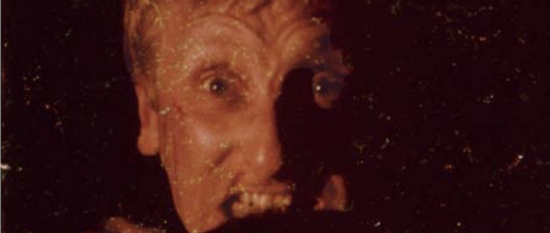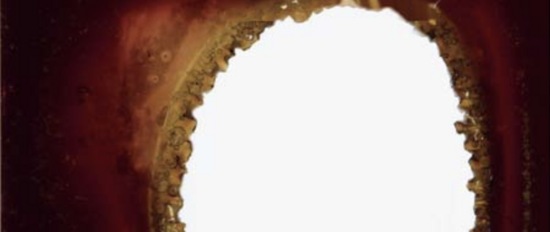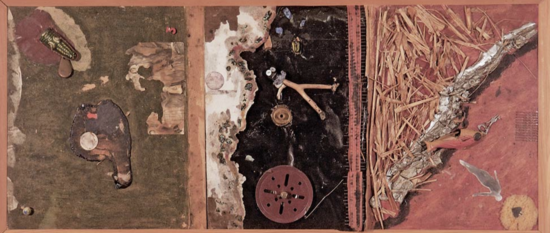Cinema by Other Means, a Symposium
International Symposium | November 16, 2024, University of Basel (Slavisches Seminar, Nadelberg 8, Seminarraum)
In 2010, the essay “Cinema by Other Means” was published in the legacy journal for contemporary art and critical theory October. Written by Pavle Levi, this essay sketched out his notion of artistic experiments that worked through and around the idea of film, but that did not rely on the actual filmic apparatus to activate their effects, whether material or ideological. This canon of works of art that Levi assembled and assessed, from “paper films” to performance films to imaginary films and more, stretched from the early 20th century avant-gardes to alternative art in the socialist era in Europe. Its practitioners included poets, writers, photographers and many others who had a passionate interest in cinema – so much so that they conceptually disassembled it, reverse-engineered it, and created works that were both a loving homage as well as critical questioning of the art form.
This essay became the basis for a book of the same title published by Levi in 2012. In it, he expanded his concepts and also explored the work of additional artists who practiced this radical form of cinematic devotion. The book had evolved its focus on artists from the pre-war and post-war Yugoslavia, who have been greatly understudied in the history of the avant-garde as well as the history of moving image art. As such, Cinema by Other Means became the rare, widely-accessible, book-length study that trained a rigorous and inquisitive gaze on the historical intersections between film and art in Yugoslavia, and even in the wider region of Eastern Europe. It is a masterful work of scholarship that deserves renewed attention and sustained engagement for the significance of its project.
In 2013, the Museum of Contemporary Art in Belgrade organised an exhibition as an adaptation of the book, curated by Dejan Sretenović. It was another rare moment in which these pioneering works were put into dialogue with each other and celebrated for their visionary approaches. On that occasion, the book was also translated into Serbian and published by the Museum. In the ensuing decade, the field has shifted and more studies of film art and video art in socialist and post-socialist Europe are emerging, as well as screen programs and gallery exhibitions that excavate these works and provide a new context around them. Perhaps it is now an open secret in the academic community and also the art world that the most exciting and still generally undervalued area of inquiry in the history of moving image art is, in fact, the films and videos from Eastern Europe in the mid-20th century. Many of these works are still waiting for discovery, for proper preservation, for translation and ultimately for the appreciation they deserve. In this endeavor, Cinema by Other Means was ahead of the curve in its historicisation and theorisation of this fascinating phenomenon.
This day-long symposium at Slavisches Seminar der Universität Basel in commemoration of 15 years since the publishing of Cinema by Other Means will gather researchers and curators to contemplate the various contexts surrounding Levi’s project and to extend its significance in novel directions. In addition to presentations and panel discussions, there will be a companion film program presented at Stadtkino Basel.
Levi ended his original essay with a quote by Annette Michelson, the influential professor, theorist and co-founder of October:
When is a film not a film? And when is a film a movie? And, as they say, “What is cinema?”
He concluded his book with a quote by the legendary Jean-Luc Godard:
I have become what I was when I first started being interested in cinema. I am a nothing which you throw into the gutter.
Let us then move at this symposium and its related programs from the crevice to the stitch, from the gutter to the splice, from the cinema to life – but not necessarily in that order.
Image credits:
1–2: Stills from Maratonci trče počasni krug (The Marathon Family, Slobodan Šijan, 1982); experiment also known as Media Suicide, Investigation No. 4—Film, 1981. Source: Pavle Levi’s Cinema by Other Means (Oxford University Press, 2012). Courtesy of the artist
3: Aleksandar Vučo and Dušan Matić, The Frenzied Marble (1930) © Museum of Contemporary Art, Belgrade
4: Boško Tokin, Leave Your Prejudice Behind (1929), courtesy of Marinko Sudac (Marinko Sudac Collection)
All images from: Pavle Levi, Cinema by Other Means (Oxford & New York: Oxford University Press, 2012)
Registration
The symposium is open to all interested persons. Please register here.
Locations
Slavisches Seminar
Nadelberg 8
4051 Basel
(The entrance is at Nadelberg 6)
Stadtkino Basel
Klostergasse 5
4051 Basel
Participants:
- Pavle Levi (Stanford University)
- Sanja Bahun (University of Essex)
- Petra Belc (Zagreb)
- Anna Hodel (University of Basel)
- Kim Knowles (Aberystwyth University)
- Matthias Meindl (University of Zurich)
- Milan Milosavljević (Academic Film Center Belgrade)
- Nikola Radić (University of Zurich)
- Tanja Simeunović (University of Basel)
- Sonja Simonyi (Brussel)
- Philip Widmann (Berlin/University of Zurich)
Organizers:
The symposium is organized by Greg de Cuir Jr (Kinopravda Institute, Belgrade) and Clea Wanner (University of Basel).
Quick Links




